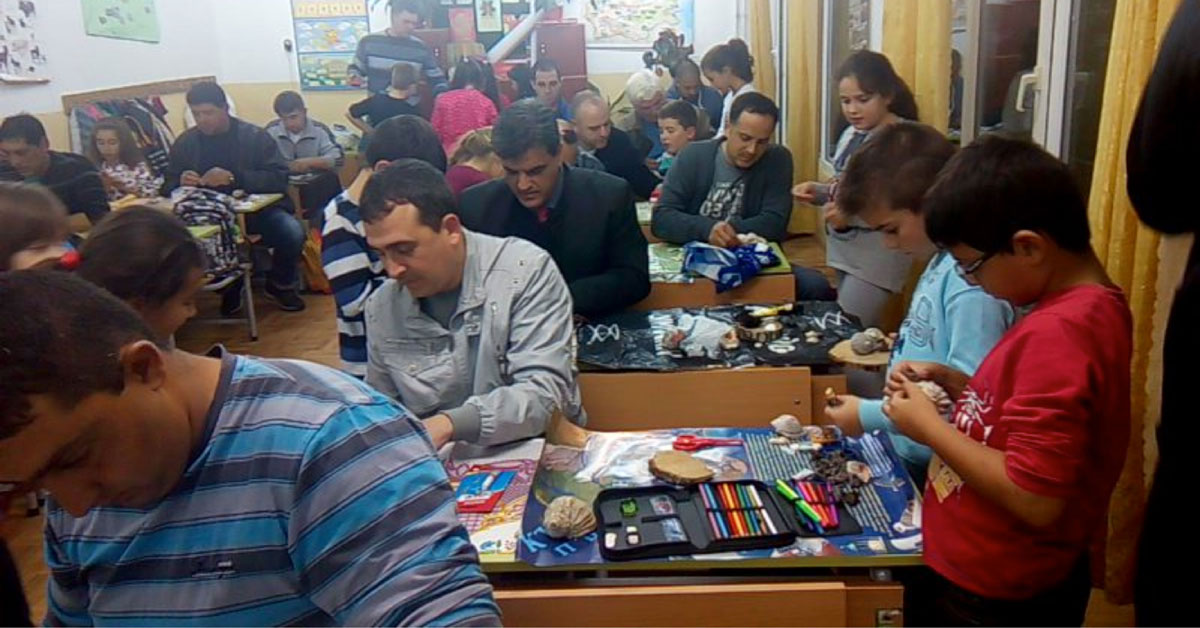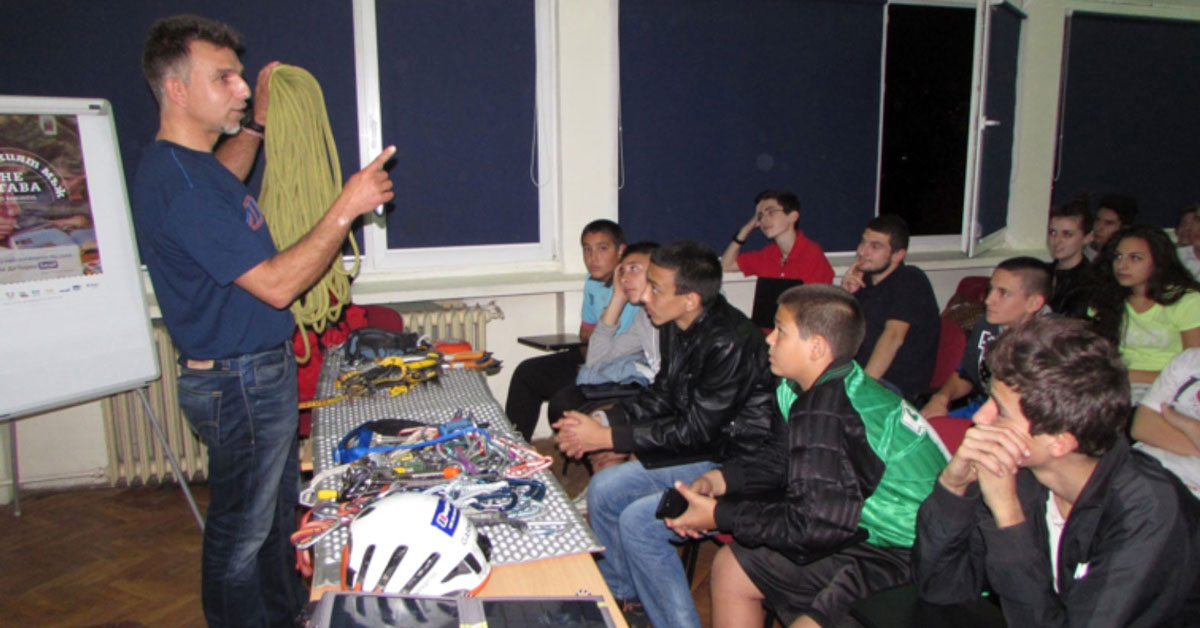
MenCare Bulgaria held its third annual Father’s Week – one of the campaign’s major public events – from November 9 to November 15 this year, reaching dozens of communities and hundreds of individuals across the country.
The slogan of this year’s celebration was “A Model Father,” which aimed to communicate that every father or significant male figure is a model for his child, be it in a positive or in a negative way. The campaign also aimed to show men that being a good dad doesn’t mean you have to be perfect – each and every father has the ability to be involved in affectionate, equitable, and nonviolent ways in his children’s lives.
The success of Father’s Week was reflected by increased awareness across Bulgaria about the importance of fathers’ involvement. Over 100 organizations – schools, kindergartens, cultural institutes, and more – from 36 communities in Bulgaria took part in the initiative, conducting numerous, creative activities that jointly engaged fathers and children. More than 65 national and regional media outlets covered Father’s Week.
One of the many activities that took place during the week was a climbing expedition to the Cherni Vrah (“Black Peak”) of Vitosha Mountain, organized by internationally recognized mountaineer Boyan Petrov. Boyan also gave a presentation about his alpine experiences in front of parents, students, and the media.

The MenCare Bulgaria campaign organizers highlighted the success of Father’s Week and the importance of reaching even more fathers and families in the future with messages about men’s involvement as equitable, nonviolent caregivers:
“What can we say as a team? We are happy. And we want more.”
The campaign’s success indicated once again that it is perceived very positively nationwide. The feedback from teachers also revealed a new understanding around the positive aspects of involving fathers in children’s education:
“[Involving fathers in school life] increases their respect for our work. A university professor told me that he has performed lectures in front of 100 students, but the most difficult lecture he has ever done was in front of my 25 pupils.”
During Father’s Week in Bulgaria, an international conference entitled “Fatherhood and Gender-Equitable Parenting in the Balkans: Practice, Policy and Research” took place in Sarajevo, Bosnia and Herzegovina. Organized by CARE International Balkans and its regional partners, the conference included a presentation of the MenCare Bulgaria campaign. The event proved to be an important experience in terms of exchanging good practices and approaches for engaging men as fathers in gender equality.